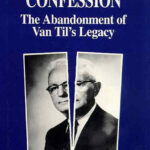
Chapter 32: The Problem of Faith
Chapter 32: The Problem of Faith
Written by Dr. Greg Bahnsen

Chapter 31: The Problem of Knowing the “Super-Natural”
Chapter 31: The Problem of Knowing the “Super-Natural”
Written by Dr. Greg Bahnsen

Chapter 30: The Problem of Evil
Chapter 30: The Problem of Evil
Written by Dr. Greg Bahnsen

Chapter 29: Apologetics in Progress
Chapter 29: Apologetics in Progress
Written by Dr. Greg Bahnsen

Chapter 28: Tools of Apologetics
Chapter 28: Tools of Apologetics
Written by Dr. Greg Bahnsen

Chapter 27: Answering Objections
Chapter 27: Answering Objections
Written by Dr. Greg Bahnsen

Chapter 26: The Heart of the Matter
Chapter 26: The Heart of the Matter
Written by Dr. Greg Bahnsen

The Great Debate | Greg Bahnsen vs. Gordon Stein: Does God Exist?
The Great Debate | Greg Bahnsen vs. Gordon Stein: Does God Exist?
Written by
The Great Debate (as it has been dubbed) is the now-famous interaction between Dr. Greg Bahnsen and Gordon Stein that occurred at the University of California, Irvine back in 1985. The topic was Does God Exist?
Never since then have we witnessed such a masterful presentation of presuppositional apologetics. Dr Bahnsen was truly a gifted man, and it showed here.
Please enjoy listening to the debate below, and be sure to read along in the transcript. In fact, print it out and take notes!
Download a pdf of the transcript here

Chapter 25: Ready to Reason
Chapter 25: Ready to Reason
Written by Dr. Greg Bahnsen

Westminster’s Confession: The Abandonment of Van Til’s Legacy
Written by Gary North
WESTMINSTER’S NEGATIVE CONFESSION
In the final days of October, 1990, the long-predicted book by the faculty of Westminster Theological Seminary finally appeared: Theonomy: A Reformed Critique. In response come Westminster’s Confession. It is both a negative and a positive statement. Theonomists believe that “you can’t beat something with nothing.” It is not enough to demonstrate that someone is wrong; you must also show what is correct.
Cornelius Van Til made this principle the bedrock application of his apologetic method. It was not enough to demonstrate that his opponents’ systems of thought were internally inconsistent; he also showed why Christianity is the only logical alternative. But he left an incomplete legacy. He refused to offer an explicitly biblical alternative to the natural law theory that he had refuted. His system created a judicial vacuum.
Into that vacuum have come two rival factions: the political pluralists and the theonomists. The battle is now engaged.
Westminster Seminary’s problem for a generation – indeed, Calvinistic American Presbyterianism’s problem for two centuries – has been to justify a commitment to modern religious and political pluralism in terms of the Westminster Confession’s judicial standards. The faculty has been double-minded on this point:
Proclaiming their commitment to Van Til’s apologetic method, they have simultaneously denied the idea that the Bible is the bearer of biblical blueprints or judicial frameworks for society. In short, they have abandoned any ideal of a Christian society, i.e., Christendom itself.
This is Westminster’s social and cultural confession – a Theologically negative confession, proclaiming in the name of the original Westminster Assembly what society ought not to be, but never daring to suggest what it should be. In contrast, Westminster’s Confession offers a positive confession. It offers a biblical alternative. It restores the vision of Christendom.
